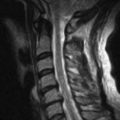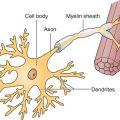CHAPTER 125
Chronic Fatigue Syndrome
Definition
Chronic fatigue syndrome (CFS) is a debilitating condition of unknown nature and cause, but most medical authorities now accept its existence. CFS is characterized by severe, disabling, medically unexplained fatigue for more than 6 months and prominently features subjective impairments in concentration, short-term memory, and sleep as well as musculoskeletal pain [1]. Sufferers experience significant disability and distress, which may be further exacerbated by a lack of understanding from others, including health professionals. CFS affects both adults and children.
Epidemiologic research in Western countries has demonstrated that among adults, between 230 and 500 of every 100,000 persons are affected with CFS [2–4]. Women have CFS more commonly [5], as do minority groups and people with lower educational status and educational attainment [2].
The causes of CFS remain uncertain. CFS may start either gradually or suddenly. In the latter case, it is often triggered by an influenza-like viral or similar illness. Some progress in the understanding of the disease has been made when causes were divided into predisposing, triggering or precipitating, and perpetuating factors [6,7]. Personality (neuroticism, introversion) and lifestyle factors, inactivity in childhood and inactivity after infectious mononucleosis, and genetic factors are presumed to influence vulnerability in CFS. Certain infectious illnesses (e.g., Epstein-Barr virus infection, Q fever, and Lyme disease), precipitating somatic events (e.g., serious injuries), and psychological distress (e.g., serious life events) may precipitate the disorder. The perceptions, illness attributions, and beliefs of patients may encourage avoidant coping and perpetuate the illness.
Among various pathophysiologic hypotheses tested, some evidence has emerged supporting subtle hypoactivity in the hypothalamic-pituitary-adrenal axis with lower than normal cortisol response to increased corticotropin levels [8] and a hyperserotonergic state or upregulated serotonin receptors in CFS [9,10]. Whether these alterations are a cause or a consequence of CFS, however, remains unclear. Dysfunction in the immune system in CFS is inconsistently evidenced by findings of abnormal cytokine production, mainly concentrating on proinflammatory ones that are known to be involved in the regulation of the hypothalamic-pituitary-adrenal axis and sympathetic nervous system, such as tumor necrosis factor, interleukin-1, and interleukin-6 [11]. On the tissue level, cytokines such as interleukin-6 are involved in the stress response and represent crucial inducers of sickness behavior [12], which is characterized by avoidance behavior, apathy, sleepiness, impaired memory and concentration, anorexia, mild fever, and increased sensitivity to pain. No convincing evidence exists to support CFS as a continuing viral infection [11]. Increasing evidence suggests that in a large subgroup of CFS patients, central sensitization with widespread hyperalgesia, delayed diffuse noxious inhibitory control, and dysfunction of endogenous inhibition during exercise seems to corroborate several psychological influences on the illness [13]. Functional magnetic resonance imaging studies in patients with CFS revealed findings indicative of increased neuronal resource allocation [14] or dysfunctional motor planning [15], which seems to be consistent with cognitive impairment in these patients.
Symptoms
Patients with CFS typically present with a variety of symptoms that may widely overlap with symptoms of functional somatic syndromes, including the irritable bowel syndrome, fibromyalgia, multiple chemical sensitivity, chronic pelvic pain, temporomandibular joint dysfunction, and Gulf War illness [11].
Patients experience profound, overwhelming exhaustion, both mentally and physically, which is worsened by exertion and is not completely relieved by rest [16]. Fatigue is highly subjective, multidimensional, and variable in nature, and it does not necessarily need to be the major and most debilitating symptom in this condition [1]. Patients may express their complaints of fatigue in different ways. Patients’ expectations and causal attribution of symptoms to somatic factors, hidden agenda involving insurance issues, and invalidity of benefit claims have been related to an increase in symptoms and may contribute to a diversity of symptoms reported [7].
In addition to fatigue, patients with CFS usually complain about a wide variety of multisystem symptoms that are nonspecific and variable in both nature and severity over time. These may be just as prominent as fatigue and are best summarized in different categories [16,17].
• Postexertional malaise. Patients report a period of deep fatigue and exhaustion that lasts for more than 24 hours after physical exertion.
• Complaints of pain. These include headaches of a new type, pattern, or severity; muscle pain; and multijoint pain. Patients may further report pain in bones, eyes, and testicles; abdominal and chest pain; chills; and painful skin sensitivity.
• Unrefreshing sleep and rest is a hallmark of CFS, and insomnia is also common. Patients report more difficulty in falling asleep, more interrupted sleep, and more daytime napping. It is extremely difficult for many patients to maintain a sleep schedule. Patients report that exercise, unlike in healthy persons, worsens the insomnia and unrefreshing sleep symptoms alike.
• Psychological complaints of emotional lability, anxiety, depressive mood, irritability, and sometimes a curious emotional “flattening” most likely due to exhaustion may be reported by CFS patients. CFS patients with preexisting psychiatric symptoms may report that these worsen with the onset of CFS. Treatment of psychiatric symptoms alone does not relieve the physical symptoms of CFS, indicating that the disease is not only psychological in nature.
• Other frequently reported complaints refer to general hypersensitivity and poor temperature control; these include low-grade fevers, photophobia, vertigo, nausea, allergies, hot flashes, and rashes [18,19].
Physical Examination
The physical examination is directed toward determination of whether symptoms are caused by any other disease or illness. The findings of the general medical and neurologic examinations should be normal. There may be low-grade fever with temperatures between 37.5° C and 38.5° C orally, nonexudative pharyngitis, and tender cervical or axillary lymph nodes up to 2 cm in diameter. A mild hypotension, elicited mainly with tilt-table testing and reversed by mineralocorticoids, may be observed. In some patients, orthostatic hypotension with wide swings in blood pressure resulting in syncope as well as intermittent hypertension may be found [20]. Complaints of paresthesias usually prove to be odd on sensory testing, particularly numbness in the bones or muscles or fluctuating patches of numbness or paresthesias on the chest, face, or nose. A few patients report blurred or “close to” double vision. In neither case are there physical findings to corroborate the sensory experiences [20]. Unsteadiness on standing with closed eyes may be found.
A thorough mental status examination is performed to rule out any exclusionary psychiatric disorders. The psychological examination may reveal abnormalities in mood, intellectual function, memory, concentration, and personality. Particular attention should be paid to anxiety, self-destructive thoughts, and observable signs such as psychomotor retardation [1].
The musculoskeletal examination findings should be normal. In CFS patients with arthralgia and myalgia, joint swelling and inflammation and other superimposed pain generators, such as bursitis, tendinitis, and radiculopathy, have to be ruled out. Palpatory examination of muscles may reveal tender muscles, tender points that are not numerous enough to be classified as fibromyalgia, and individual trigger points.
Functional Limitations
Disablement varies widely among patients with CFS. Whereas some are able to lead a relatively normal life, others are totally bed bound and unable to care for themselves. In a rehabilitative assessment, body functions that represent the patient’s core subjective symptoms may reveal the most pronounced impairment; these are energy and drive functions, sensation of pain, sleep functions, attention function, emotional functions, memory functions, and exercise tolerance functions. Both muscle and cardiopulmonary function as demonstrated by cardiopulmonary stress testing may be reduced in these patients. Avoidance behavior as a consequence of patients’ experiencing worsening of symptoms after previously well-tolerated levels of exercise and kinesiophobia—a specific kind of fear-avoidance behavior that is defined as an excessive, irrational, and debilitating fear of physical movement and activity resulting from a feeling of vulnerability to painful injury or reinjury—may increase sedentariness in CFS patients. However, kinesiophobia was not correlated with reduced exercise capacity by bicycle ergometer exercise stress testing [21].
CFS patients may be able to begin but not to complete mental or physical activities that were previously easily accomplished. Thus, tasks that predominantly challenge the cognitive performance, like focusing attention, solving problems, handling stress, making decisions, undertaking multiple tasks, or driving a car, may limit patients in carrying out their daily routine, especially at the workplace. Tasks that require predominantly physical performance, like walking or household tasks, may limit the patient’s activities of daily life. Many patients have to modify or give up physical hobbies and exercise and find themselves unable to work full-time or at all [17]. Categories related to intimate relationships, family relationships, communication, and complex interpersonal relationships may be altered in CFS patients, thereby restricting them from participation in social and work life.
Cognitive avoidance coping as a major illness-perpetuating factor was found negatively related to social functioning [22], and a strong association seems to exist between kinesiophobia and self-reported activity limitations and participation restrictions in CFS patients [21]. In addition to environmental factors related to the immediate family and friends, health professionals may reinforce patients’ symptom severity and illness behavior and facilitate further impaired functioning in these patients. Personal beliefs, practices, ideologies, spirituality, laws, and societal norms may also facilitate or hinder functioning in CFS patients. A considerable number of patients with CFS in many countries are receiving disability benefits or private insurance or have made claims and been denied [23].
Diagnostic Studies
There are no accepted diagnostic tests for CFS. Diagnosis of CFS is primarily based on the patient’s symptoms that fit scientific case definitions of CFS, which aim to effectively distinguish CFS from other types of unexplained fatigue. Among numerous scientific case definitions available, the U.S. Centers for Disease Control and Prevention criteria are the most widely supported [1]. This case definition characterizes CFS by a grouping of nonspecific symptoms and a diagnosis of exclusion (Table 125.1). To receive a diagnosis of CFS, fatigue must have persisted or recurred during 6 or more consecutive months. Concomitant symptoms must have persisted or recurred during 6 or more consecutive months of illness and cannot have predated the fatigue [16]. Clinicians may have difficulties in diagnosis of CFS, especially by not acknowledging the diagnosis of fatigue when its onset is gradual or by the diversity of patients’ fatigue reports. Instruments developed to assess fatigue, such as the Checklist Individual Strength, the Chalder Fatigue Scale, and the Krupp Fatigue Severity Scale, are widely used in research studies and may assist physicians with objectivation of fatigue and establishment of the medical diagnosis.
Fatigue and similar symptoms can be caused by a wide variety of conditions. Thus, diagnosis of CFS needs to include a diagnostic process that eliminates potential causes of the patient’s symptoms (see the section on differential diagnosis). In addition to a thorough history and a meticulous physical examination, diagnostic studies include a mental status examination and a minimum array of laboratory tests.
A structural psychiatric interview is essential to identify permanent psychiatric exclusions (see Table 125.1 and the section on differential diagnosis). Reliable detection instruments may be helpful when physicians perform screening for psychiatric diagnoses, such as the Composite International Diagnostic Interview [24] and the Structured Clinical Interview for DSM-IV Axis I (SCID) [25].
Laboratory examination is intended to detect other disorders, not to find out whether a patient has CFS. Recommendations for laboratory testing have been provided (Table 125.2).
Questionnaires such as the Epworth Sleepiness Scale and the Centre for Sleep and Chronobiology Sleep Assessment Questionnaire are useful to screen for and to profile sleep abnormalities [26]. Polysomnography defines sleep architecture, duration and timing of sleep, respiratory obstruction, and abnormal limb movements and may be indicated when primary sleep disorders exclusionary to CFS, such as sleep apnea and narcolepsy, have to be ruled out.
Assessment of a patient’s functioning and health according to the International Classification of Functioning, Disability, and Health (ICF) [27] would further complete the diagnostic studies in patients with CFS. The classification might be recommended, but compared with other chronic conditions like osteoarthritis and back pain, ICF core sets that best describe the prototypical spectrum of disability have not yet been developed for CFS [28,29]. Furthermore, ICF core sets have to be psychometrically validated after they have been developed. This can be best accomplished by item response theory–based computerized adaptive testing, a method selecting only those items out of the item pool that are most relevant for the individual patient [30,31]. For the time being, instruments that have been recommended in a consensus conference may be used to measure the symptom-specific disablement and quality of life of patients with CFS [16].
Treatment
Initial
Treatment of CFS is symptom based and aims to improve fatigue and comorbid conditions, such as sleep disturbances, depression, and painful symptoms.
Treatment of CFS with pharmacologic therapies has had disappointing results in most cases. So far, no pharmacologic treatments have been proved effective in the treatment of fatigue. The subtle changes found in the hypothalamic-pituitary-adrenal axis have led to a few randomized controlled trials that overall did not establish steroids as a treatment of choice [34]. For immunologic therapies like immunoglobulin G, staphylococcus toxoid, ribonucleic acid, and others, there is insufficient evidence about their effectiveness in CFS [34].
Anecdotal evidence suggests that low doses of antidepressant medication (e.g., 10 to 30 mg of nortriptyline) administered at bedtime improve sleep and diminish pain, although the benefit of these medications has not been demonstrated in CFS [34,35]. In addition, the use of acetaminophen, nonsteroidal anti-inflammatory drugs, and opioids may be worthwhile in patients with prominent musculoskeletal complaints or headaches.
Complementary medicine has gained increasing popularity among patients with chronic diseases. These treatments include homeopathy, herbal remedies, supplements, megavitamins, special diets, and energy healing. Although individual studies revealed beneficial effects for homeopathy and supplements in the treatment of CFS, there is insufficient evidence for the effectiveness of these interventions [34].
Rehabilitation
Management based on a rehabilitation model is now recommended for patients with CFS. The individual rehabilitative assessment is necessary to identify those treatment targets that are most likely to reach the rehabilitation aims of the patient with CFS. These rehabilitation programs may involve different professions and therapies, and increasing evidence for the effectiveness of individual rehabilitation interventions has emerged [34–37].
Cognitive-behavioral therapy for CFS addresses changing of condition-related cognitions and behaviors and incorporates two elements: (1) a cognitive element focusing on the modification of thoughts and beliefs thought relevant for the disease process and (2) a behavioral element consisting of a graded increase of activity. Several systematic reviews suggest that cognitive-behavioral therapy for adults with CFS is an effective treatment in improving both physical functioning and symptoms such as fatigue, anxiety, and mood compared with either routine care or relaxation therapy [34–36]. Furthermore, one study provided evidence supporting the effectiveness of cognitive-behavioral therapy in children and adolescents [38]. In this study, cognitive-behavioral therapy was associated with a significant positive effect on fatigue, symptoms, physical functioning, and school attendance.
Graded exercise is designed to overcome deconditioning and to increase strength and cardiovascular health. Cycle ergometer training, swimming, or walking may be combined according to the patient’s preferences. Graded exercise has no intentions of explicitly treating cognition but should incorporate considerable education wherein the sufferer learns to start at an appropriate level of activity (based on intensity and duration) that is gradually increased, at a rate that does not substantially increase symptoms. If severe fatigue follows exercise, lasting more than 24 hours, the exercise prescription is adjusted so it is less demanding; there are no specific and firm guidelines because of the wide spectrum found in this syndrome. Overall results from systematic reviews suggest that graded aerobic exercise therapy, at intensities between 40% and 70% of the maximum oxygen consumption performed three to five times per week for 30 minutes, is a promising intervention with positive effects on CFS patients’ symptoms and quality of life [34,37]. Compared with the symptom-oriented approach of exercise therapy, the time-contingent approach, which considers the duration and frequency of exercise therapy to reverse deconditioning (and in which exercise intensity is based on achievable exercise at baseline, followed by a negotiated gradual increase) [39], seems to clearly offer more advantages in symptom reduction and improving functioning [40]. A few patients may find health benefits and pain relief from other than aerobic exercises, like gentle stretching and gentle strengthening including yoga or Tai Chi.
Education of the individual as to what is known and not known about CFS, its impact on function at work and home, and its prognosis should be included in the rehabilitation programs. Education of patients in self-management strategies that consider when, how, and why people change their behavior over time (transtheoretical model) [41] is of utmost importance in modern rehabilitation. The transtheoretical model describes a “meta” model and critically incorporates aspects of other models into its theoretical framework. These are self-initiated and professionally facilitated changes in health beliefs, behavioral intentions, decision-making processes, self-efficacy, and coping to overcome the temptations component of the transtheoretical model. Patients are better prepared for coping on a daily basis, have more realistic expectations, and think that the physician is not ignoring their concerns. In addition, when appropriate, the individual should be informed that periodic reassessment for a possible treatable underlying process may ensue. This may help relieve anxiety about abandonment. Avoidance of heavy meals, alcohol, caffeine, and total rest can help, as can minimizing intake of substances that alter sleep patterns or alter one’s self-image [42].
Procedures
Treatment is symptomatic; therefore, procedures may be chosen to help with trigger points, dizziness, headache, or other symptoms as they occur. If trigger points are noted, appropriate therapy may be initiated. Spray and stretch techniques, dry needling, and trigger point injection with a local anesthetic or small amount of steroid have all met with some success [43].
Acupuncture is an important constituent of traditional Chinese medicine. It is believed in traditional Chinese medicine that acupuncture can strengthen the vital essence of the human body and remove the blockage in energy channels. The application of acupuncture for CFS is mainly empirically based; a few clinical trials that included a control group suggest that this procedure may be effective in reducing symptoms [44].
Surgery
No specific surgery is performed for CFS.
Potential Disease Complications
Recovery without treatment is rare, with a median recovery rate of 5% and improvement rate of 39.5% [5]. Recovery episodes seem more likely in patients with less severe fatigue and if patients do not attribute the illness to physical causes [5]. The primary complication of the disease is continued fatigue and loss of function, which commonly occur despite treatment. Predictors of poor treatment outcome were membership in a self-help group, receipt of a sickness benefit, claiming of a disability-related benefit, low sense of control, strong focus on symptoms, and pervasively passive activity pattern [7].
Both reduced functioning and sedentariness may increase the progress or severity of chronic diseases of the cardiovascular and metabolic systems, thereby further increasing the disablement of patients with CFS.
Potential Treatment Complications
Physicians who convey understanding and compassion to patients, despite the lack of a known “cure,” can alter a patient’s quality of life; fear, or the perception of being abandoned, can markedly accentuate frustration and accelerate a decline in function. Medication side effects should be reviewed on an intermittent basis to be certain that the nonspecific symptoms found in CFS are not being accentuated. Care should be taken to avoid too strenuous an exercise program because the fatigue that may ensue can be both physically and mentally debilitating. Despite optimal care, depression, fatigue, and a loss of function may still occur. Physicians and patients should both be aware that symptoms found in CFS may persist for months or years but that remittance or recovery is still possible.
Acknowledgment
The author thanks Dr. Thomas Brockow, FBK German Institute for Health Care Research, for his valuable comments on the manuscript.







